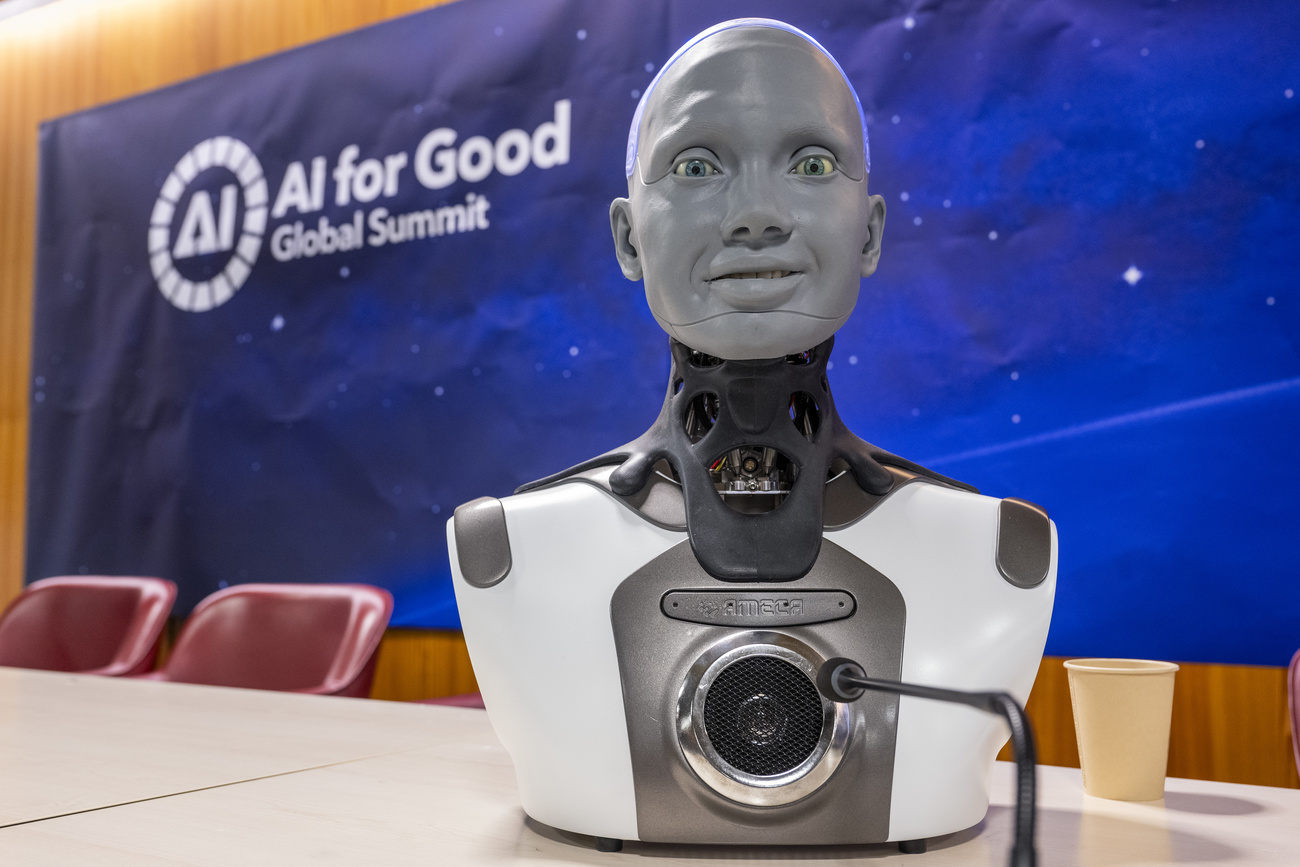
Swiss initiative aims for global leadership in AI

The Federal Institutes of Technology in Lausanne and Zurich want to position Switzerland as a leading global centre for artificial intelligence (AI). With this aim in mind, they launched an initiative called "Swiss AI" on Monday.
As part of the initiative, new large language models (LLM) such as ChatGPT are to be developed and trained, the two universities (federal technology institute ETH Zurich and Swiss Federal Institute of Technology Lausanne (EPFL)) announced on Monday. Unlike the large language models currently available to the public, however, the initiative is based on transparency.
+The ethics of artificial intelligence
“It must be clear to everyone how and on which data the models were trained and how they arrive at their results,” emphasised Jan Hesthaven, Academic Vice President of EPFL, in the press release.
Swiss supercomputer
In February 2024, the new “Alps” supercomputer will be put into operation at the Swiss National Supercomputing Centre (CSCS) in Lugano. According to the universities, this will be one of the most powerful computers in the world.
According to the press release, this will give Switzerland a major competitive advantage. This is because supercomputing infrastructure is in short supply worldwide due to the rapid development of generative AI and is also mostly owned by a few large companies.
+Artificial intelligence: an opportunity or a risk?
In the “Swiss AI” initiative (AI for Artificial Intelligence), the two Federal Institutes of Technology want to pool the expertise of around a dozen Swiss universities, universities of applied sciences and research institutions. According to the universities, more than 75 professors have already been recruited.
More
This news story has been written and carefully fact-checked by an external editorial team. At SWI swissinfo.ch we select the most relevant news for an international audience and use automatic translation tools such as DeepL to translate it into English. Providing you with automatically translated news gives us the time to write more in-depth articles. You can find them here.
If you want to know more about how we work, have a look here, and if you have feedback on this news story please write to english@swissinfo.ch.

In compliance with the JTI standards
More: SWI swissinfo.ch certified by the Journalism Trust Initiative





























You can find an overview of ongoing debates with our journalists here . Please join us!
If you want to start a conversation about a topic raised in this article or want to report factual errors, email us at english@swissinfo.ch.